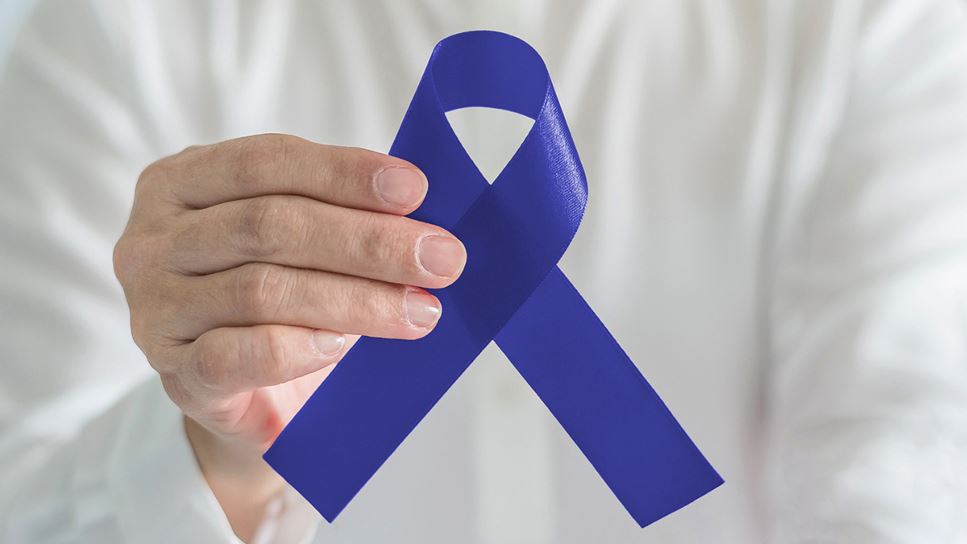Any cancer that starts in the colon or rectum is considered colorectal cancer. According to the Centers for Disease Control and Prevention (CDC), colorectal cancer is the fourth most common type of cancer and the fourth leading cause of cancer-related death in the U.S., based on 2025 estimates.
Colorectal cancer is more common in men than women, and most diagnoses occur after the age of 50. Higher rates and death from colorectal cancer have been reported in Black individuals compared to other races, and there is a higher risk of death for American Indians and Alaska Natives. Racial and ethnic disparities in colorectal cancer are complex, but barriers these individuals face in accessing health care play an important role.
Colorectal Cancer Guidelines and Screening
Several organizations have updated their screening guidelines due to the increased number of young adults who have been diagnosed with colorectal cancer in recent years. Screening is now recommended starting at age 45 and continuing through age 75 for people at average risk, meaning those who have:
- no personal or family history of colorectal cancer or certain polyps
- no personal history of inflammatory bowel disease
- no confirmed or suspected hereditary syndromes that increase risk for colorectal cancer
- no personal history of radiation treatment to the abdomen or pelvis for prior cancer
For adults ages 76 to 85, screening should be determined on an individual basis, taking into account medical history, life expectancy and personal preferences. Screening is not recommended for people older than 85.
All people at high risk of colorectal cancer should discuss screening and recommendations with their physicians.
There are three main types of exams: colonoscopy, which is typically performed every 10 years (or more often for people at increased risk); CT colonography, or virtual colonoscopy, which is performed every five years; and flexible sigmoidoscopy, which is performed every five or 10 years.
Identifying Symptoms of Colorectal Cancer
Early stages of colorectal cancer often do not include symptoms. People with colorectal cancer may experience gas, bloating, changes in bowel habits, constipation, diarrhea, blood in stool or dark stools, weakness, fatigue and unexplained weight loss. However, each of these symptoms may be for other reasons, so it’s important to discuss any of these symptoms with a doctor.
Healthy Lifestyle Habits and Risk Reduction
While no cancer is 100% preventable, a healthful eating plan and other lifestyle factors can help reduce risk. Research suggests the following tips can help to decrease the risk of colorectal cancer:
- Eat fiber-rich foods. Including plenty of fiber-rich foods, such as vegetables, fruits, whole grains and beans, may help to lower risk of cancer.
- Limit red meat and avoid processed meat. According to the American Institute for Cancer Research, eating more than 18 ounces per week of red meat (including beef, pork and lamb) and processed meats (including deli meats, bacon, ham and hot dogs) has been associated with a higher risk for colorectal cancer.
- Avoid or limit alcoholic drinks. Evidence shows an increased risk for many types of cancer with any amount of alcohol. For people of legal age who choose to drink alcohol, it is recommended to limit intake to no more than one drink for women and no more than two drinks for men on days they drink alcohol. One drink is about 5 ounces of wine, 12 ounces of beer or 1.5 ounces of distilled liquor.
- Don’t smoke cigarettes or use other tobacco products. Research has shown the risk of colorectal cancer is higher in current and former smokers compared with people who never smoked. The good news is that colorectal cancer risk can decrease over time after quitting smoking.
- Achieve and maintain a healthy body weight. Excess body fat is associated with a higher risk for colorectal and other cancers. While overweight and obesity may be influenced by many things and not the result of diet alone, following a balanced eating plan while staying within your calorie limits will contribute to a healthy weight and overall wellness.
- Be physically active. Regular physical activity is associated with a lower risk for many types of cancer, including colorectal cancer.
How an RDN Can Help
Nutrition is important during and after cancer treatment, which may include surgery, chemotherapy, targeted therapy, radiation and immunotherapy. Registered dietitian nutritionists can assist patients with their nutrient needs and symptoms during and following treatment. For example, patients undergoing treatment may experience a loss of appetite and weight. RDNs can help by providing medical nutrition therapy (MNT), which includes ways to get adequate calories and protein to help maintain lean body tissue and enough fluids to avoid dehydration. RDNs also help manage other side effects from treatment such as vomiting, diarrhea, constipation, dry mouth, difficulty chewing and swallowing and mouth sores.
Chemotherapy may be given before or after surgery and often involves a combination of medications. Side effects that can affect a patient’s eating habits include decreased appetite, nausea, vomiting, diarrhea, constipation, abdominal pain, mouth sores, changes in taste, difficulty swallowing, a weakened immune system and fatigue.
Surgery may affect how foods are digested. Depending on a patient’s symptoms, an RDN may recommend eating small, frequent meals; drinking fluid between meals rather than with meals; and limiting gas-producing foods and those with high amounts of fiber, fat and added sugars.
If you are undergoing treatment for colorectal cancer and are looking for a registered dietitian nutritionist to add to your health care team and provide you with personalized assistance, search the Academy’s Find a Nutrition Expert database to locate one near you or ask your health care provider for a referral.
References
Find a Nutrition Expert
Looking for credible nutrition information and recommendations? The Academy of Nutrition and Dietetics' network of credentialed food and nutrition practitioners are ready to help!

